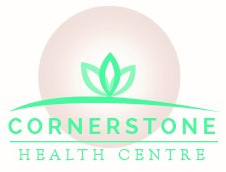Dr. Butwell Treats Back Pain and Its Inflammatory Process
Red. Swollen. Hot. Painful. Signs of inflammation that no Georgetown back pain patient wants to suffer. Dr. Butwell offers chiropractic services to reduce back pain by identifying and addressing any related inflammation.
INFLAMMATION AND BACK PAIN RELATED
How can you tell if there is inflammation? Like anything else, researchers look for ways to measure it. To measure inflammation, researchers look for inflammatory biomarkers, biological markers like tumor necrosis factor alpha (TNF-α), C-reactive protein (CRP), and interleukin-6, interleukin-1β, that showed an increase. Researchers have discovered that chronic inflammation raised cytokine production and activated pro-inflammatory pathways that may bring about non-specific low back pain. (1) Researchers observed systemic inflammation in chronic LBP and may affect transition from acute to persistent low back pain. Particularly, CRP was found elevated in acute low back pain patients and not in control patients. TNF was greater in back pain patients particularly in patients with depression. (2) Since researchers have already verified that inflammation is tied to back pain, Dr. Butwell realizes that inflammation must be reduced to help in reducing Georgetown back pain.
HOW TO STOP INFLAMMATION
Well, first, understand what inflammation does. Researchers applied lipopolysaccharide (LPS) to create intervertebral disc degeneration in experiments. They set out to see what may potentially decrease the generated back pain that comes with it and/or even avoid the degeneration initially so we humans don’t have to suffer low back pain at all! That’s a tall order though, Dr. Butwell knows. But consider this: researchers utilized LPS to establish the degeneration that led to low back pain. They found that procyanidin B3 (PRO-B3) seen in our diets prevented the production of inflammatory markers - tumor necrosis factor α (TNF-Α), interleukin-6 (IL-6), prostaglandin E2 (PGE2) and nitric oxide – linked to disc degeneration. It also stopped the loss of the disc’s gelatin nucleus pulposus cells and structural damage of its anulus fibrosus (outer rings of disc). What’s all this signify to researchers looking for a way to stop degenerative disc degeneration (DDD)? PRO-B3 may be considered as a treatment agent for intervertebral disc degeneration (IVDD). This is a welcome note for those 80% of us adults who are on track to get IVDD, a major cause of low back pain. (3) Another recent paper described that the p38 MAPK inflammatory pathway may be a way to postpone DDD utilizing the tyrosine kinase inhibitor, Genistein. (4) That is hopeful in the treatment of Georgetown back pain and inflammation.
Vitamin D FOR INFLAMMATION
Research states that vitamin D deficiency is associated with low back pain that is stronger in younger women and in those with more severe deficiency. (5) Vitamin D deficiency is connected to lumbar disc disease and more severe low back pain in postmenopausal women. (6) Let us talk about your vitamin D intake at your next Georgetown chiropractic appointment.
CONTACT Dr. Butwell
Listen to this PODCAST with Dr. Sarah Murrow on The Back Doctors Podcast with Dr. Michael Johnson. In this episode, Dr. Murrow and her patient present how the Cox® Technic System alleviated back pain due to disc bulges.

